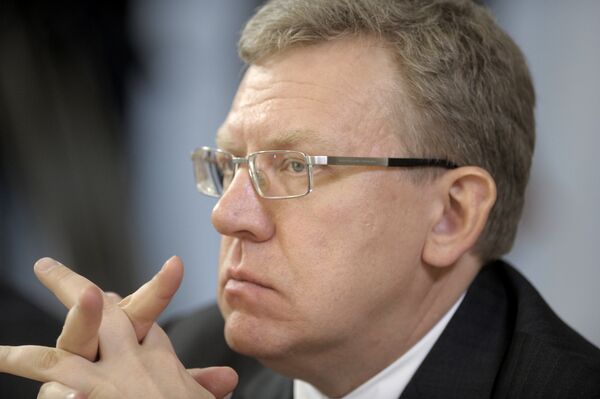Russia needs serious structural reforms to improve its business environment, diversify its economy and cut dependence on external factors, former Finance Minister Alexei Kudrin, said on Friday.
"Russia has to carry out deep structural reforms aimed at improving the investment climate in the country, without which we will fail to solve such strategic issues as the diversification of the Russian economy and reduction of its dependence on external factors," Kudrin said in a speech at an International Monetary Fund meeting last week published by Moskovskiye Novosti daily.
Kudrin, who was fired following a dispute with President Dmitry Medvedev on Monday, cited disagreements with the president on economic policies, in particular, on rising defense expenditure. Foreign investors regard Kudrin as the person most likely to carry out far-reaching economic reforms in the next government. Western economists see his departure as negative for the Russian economy.
Kudrin said that the phase of stimulating economic growth with budget spending was practically over in Russia.
"Despite a low level of sovereign debt in this country, we also need a solid medium-term budget consolidation. The need is due primarily to a high dependence of Russia's budget and economy on fluctuations of international prices on energy sources."
Russia's economy, with a sovereign debt of just 10 percent of gross domestic product and half a trillion dollars in reserves, suffers most from an over-reliance on oil and gas, which account for some 60 percent of its budget revenues.
Kudrin also noted that opportunities for developed countries to boost growth by fiscal and monetary instruments were also exhausted, after the 2008-2009 crisis boosted budget spending which consequently led to a second wave of the crisis, the sovereign debt crisis.
Japan needs a medium-term budget consolidation program most urgently among large developed states, Kudrin believes.
"In Japan, both business and households understand that a sharp tax increase and social spending cuts are inevitable sooner or later... This uncertainty became the most important reason for high savings, low private investment, large capital outflow and, as a result, a low growth for the whole two decades in the Japanese society."
In the United States, the frequent use of monetary stimulation, which means pumping more money into the economy, that causes the greatest concerns, Kudrin said. The last decade's extremely low interest rates encouraged excessive private consumption and irresponsible banking policy, boosting American economic growth and the budget deficit, which had already reached 100 percent of GDP. Kudrin called this economic model the model of growth borrowed from future generations.
Developing countries reliant on exports will also need to rebalance their economies, Kudrin said, citing China, whose economic growth will need to be supported by local demand. China will lose some of its competitive advantages, such as cheap labor, as salaries are growing, especially in littoral regions.
"The main instrument to rebalance the Chinese economy is a gradual revaluation of the Chinese currency," Kudrin added.



